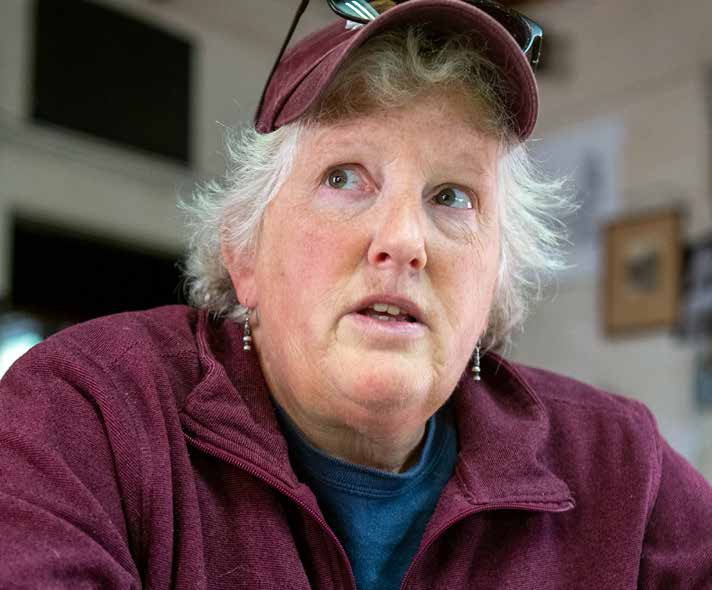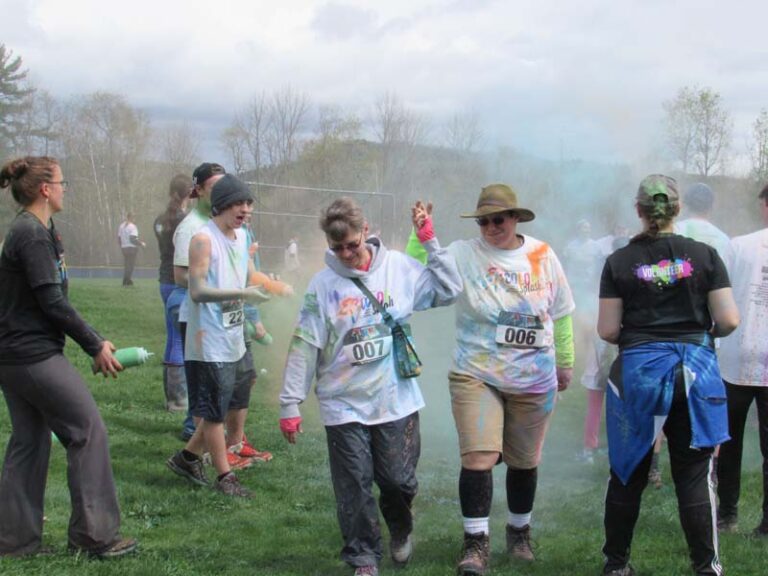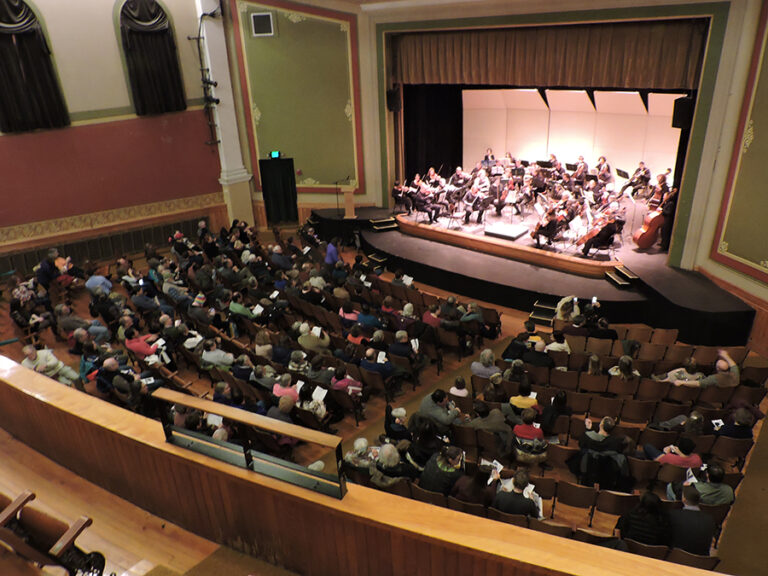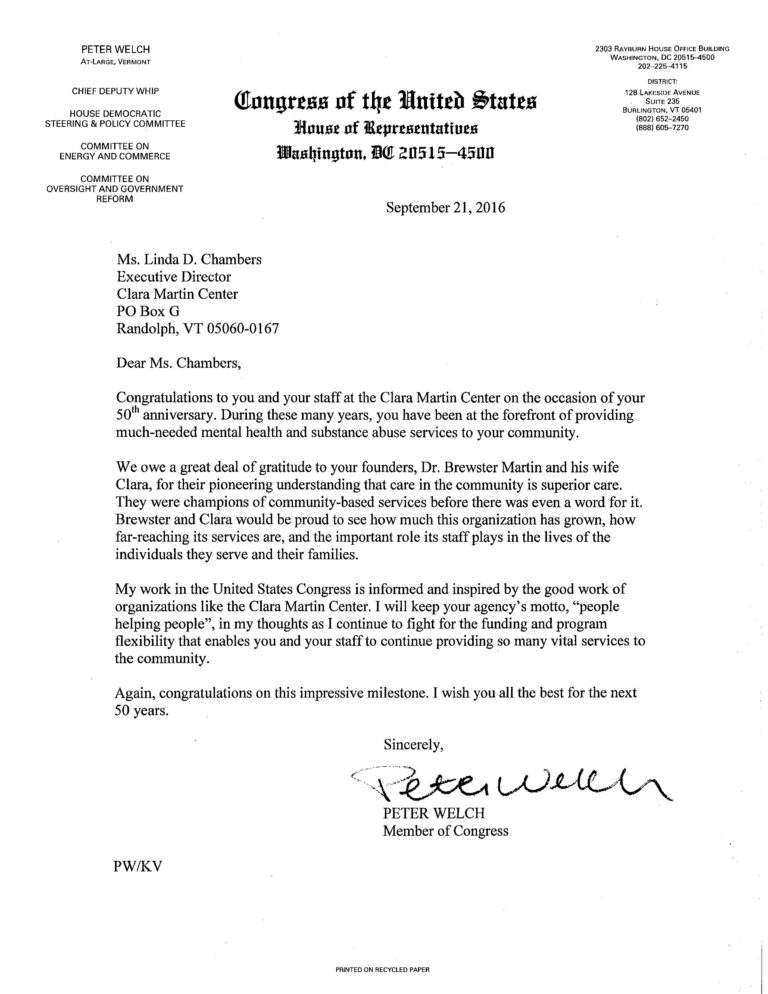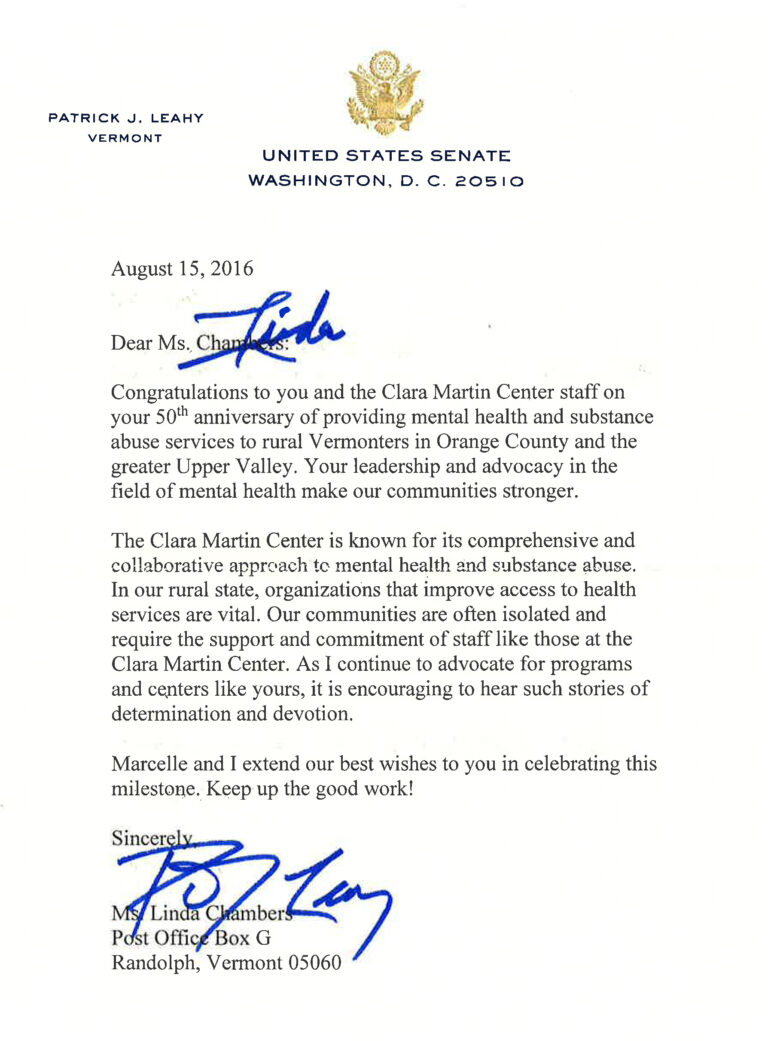Randolph Group Seeks Mental Health Solutions

Mental health problems cover a wide terrain and lines can be drawn to grave societal issues including homelessness, suicides, drug abuse, and even healthcare costs and policing. That’s why a group has been getting together for the past year to try to think through solutions.
In the middle of the pandemic, a group of Randolph folks began a monthly meeting via Zoom to talk with each other about the places in the community where mental health issues could be addressed.
Dr. Maury Smith recalled visiting his neighbors for a cup of coffee and learning about the murder of George Floyd. That incident prompted him to begin trying to think of ways to get involved in justice efforts; through research into police confrontations, he began thinking about mental health.
“I’ve not been involved in grass-root type of things,” he said, “this is really the first.”
He and fellow retired physician Dr. Marcus Coxon began talking and another friend, Neil Richardson joined in. He’s been involved in civil rights advocacy since his 20s and he quickly found an outlet.
Kristin Chandler works with a group called Team Two, which trains police officers to better respond to people in mental-health crises. As part of her program she often screens the documentary “Ernie and Joe: Crisis Cops,” which tells the story of two San Antonio police officers who are part of the city’s mental-health unit. During the pandemic, she did a series of screenings over Zoom and Richardson attended one. He connected Smith, Coxon, and Chandler and soon there was a whole group having monthly discussions about mental health issues and the ways they impact the community.
Intersections
For many, the discussions were an education in an unfamiliar topic, but others came with some subject-area expertise.
Kristen Briggs from the Clara Martin Center joined in, as did Randolph Police Chief Scott Clouatre, and many more.
They started calling the gatherings the Randolph Area Mental Health Resources Group and they delved into deep topics and heard from guest speakers that Chandler would coordinate—people such as a 911 dispatcher or a person who works with un-housed populations who shared how mental-health issues play a role in what they see day to day.
Eventually members of the group hoped for more than an educational and philosophical outlet.
“Something different’s got to happen,” Smith thought and he pushed for some sort of solid action.
Chandler invited a similar group from Craftsbury that had been set up a few years earlier to share their experiences and the Randolph group heard how their counterparts in Craftsbury had become an official town committee and crafted a mission statement.
One obvious thing that the group decided was that it could spread the word with a public showing of the “Ernie and Joe” documentary.
In February, they held that event and invited a panel of experts to talk about the content, which Smith described as pretty intense.
Chandler included a woman she knows who has dealt with mental-health issues in her own life—“She’s had interactions with police when she wasn’t well,” Chandler said— as well as a police officer, and folks from Clara Martin Center, Capstone Community Action, Orange County Restorative Justice, and people who hope to bring a Turning Point center to town.
“Each one of the groups sort of had a project that was conducive to the public helping out, so we passed around a clipboard and people could sign up,” Chandler said.
The meetings carried on monthly and members of the group turned out for a volunteer fair in September and one regular attendee, Lynn Petrucelli organized a vigil at the Whale Dance sculpture for Overdose Awareness Day.
Better Policing
If you asked different people involved in the group, Smith said, each might have a different answer about the group’s future goals, however, all seem to agree that steady progress is needed.
“Marcus and I have really been behind this idea of an embedded mental-health worker,” Chandler said.
Through her work with Team Two, Chandler said, “I’ve seen the positive effects of that and the incredible financial savings for a community.”
That type of position is one that the Vermont State Police and town departments across the state have increasingly embraced.
“It’s such a better service for the person in crisis,” Chandler said, and it often saves police officers’ time. Currently the Royalton Barracks is the only VSP barracks without such a professional and that’s something they’d like to see changed, barracks commander Hugh O’Donnell told the Randolph Selectboard during a May meeting.
National data pegs about 10% of police calls as mental health related, Chandler said, but added that the data could be incomplete.
“Almost every cop I talk to says that almost every call they respond to has some kind of mental-health component,” she said.
Chandler also sits on the town’s policing committee, which is currently laying the groundwork for Randolph’s burgeoning department.
“Scott is all for it,” she said. “He’s had this great relationship with Clara Martin for years and he knows the benefit of being able to do a handoff.” The challenge, she added is to begin collecting the data and showing the benefit to people.
“There isn’t a place on any form to say ‘we didn’t need to go here’” because a social worker would have been more effective, she said.
Since the department’s long-term goals are still being envisioned, Chandler said this is an ideal time to start thinking creatively about how a mental health worker could fit into the puzzle.
Some towns have even explored sharing mental-health workers among their police forces and that might be worth a look, too, Chandler said.
Working Together
There are lots of areas where there’s opportunity to work together, Smith and Chandler agreed.
Organizations in town already are working on law enforcement, helping the homeless, curtailing substance abuse, and supporting community; mental health touches each one of those goals in different ways and Chandler hopes the group can work well with others and make a difference without duplicating efforts.
Another mental-health observance, a march from RUHS to the Playhouse Theatre on October 1 was organized separately by Lindsey Schell and Patty Burns and Chandler and Smith enthusiastically hoped that the folks involved with that event might be interested in pitching in to future endeavors.
At the event, Dave Wrong and Brian Tonks played on stage and Jordan Turk read poetry for the crowd.
“It was a really great event,” Wrong said. “It’s a heavy topic, but it’s important.”
Wrong, who works at the Clara Martin Center, used his musical talents to try to put the issue to words in a song titled “Dark Thoughts.”
Smith said that getting people together to talk about mental illness is a positive; the more eyes on the problem, the easier the solutions will come.
“There are lot’s of people who are interested in this and are trying to do things and I feel like if there are enough people who are serious about this over a period of time, we’re going to make some gains,” Smith said.
From https://www.ourherald.com/articles/randolph-group-seeks-mental-health-solutions/
